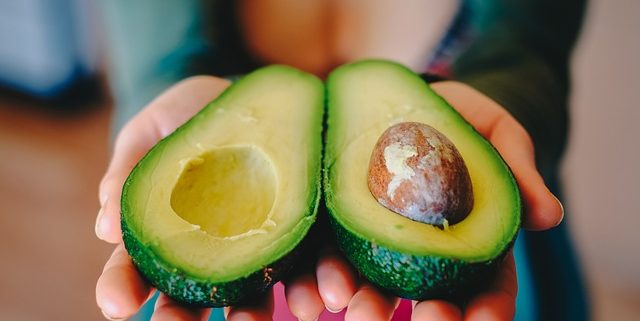You Had Me at Avocado
Avocados are IN. The major fat in avocados is monounsaturated, which is considered a healthy fat when eaten in moderation. Monounsaturated fats have shown to reduce cholesterol, known to be a main contributor to heart disease. It also reduces the risk of a stroke. This type of fat is satisfying and leaves us feeling full. So how often is it okay to eat avocados and what does the food label tell us? Keep in mind that moderation is key when choosing what to eat, as there is no perfect food.
One serving is about 1/3 of a medium avocado, containing around 80 calories. The serving size seems small, but an avocado is extremely nutrient dense and high in calories.
Avocados contain almost 5 grams of dietary fiber per serving. Fiber helps protect against heart disease, regulate bowel movements and contributes to the feeling of satiety.
FUN FACT – Avocados have more potassium than bananas. At the recommended daily intake of 3500 to 4500 mg per day, potassium helps prevent cramps, stabilize blood pressure and blood sugar levels.
They are also extremely versatile, here are 5 ways to incorporate avocados into your diet:
1) In smoothies
2) In salad dressing
3) In hummus
4) As a topping
5) As a replacement for mayonnaise
Avocados are also high in vitamin E, C and A. Vitamin A is critical for vision health while vitamins C and E boost immune health. Along with being high in fiber, good fats and vitamins, avocado’s help the body absorb nutrients more efficiently. Moderation is the key factor to consuming a healthy amount of avocado’s every day, and when moderation is achieved avocado’s and heart health are the perfect ‘avo-couple’.
-KM



